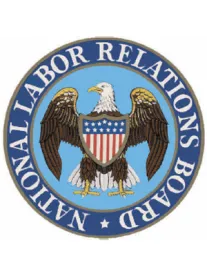Judge Amy Berman Jackson of the U.S. District Court for the District of Columbia has granted summary judgment in favor of the National Labor Relations Board (NLRB) in a highly-publicized action brought by the Chamber of Commerce and a District of Columbia construction company challenging the unprecedented representation case procedures adopted by a split NLRB in 2014. Chamber of Commerce of the United States of America, et. al. v. National Labor Relations Board, Civil Action No. 15-0009 (July 29, 2015). Commonly known in media reports as the “Ambush Election Rules,” the NLRB representation case regulations made “sweeping changes” to the union representation election process that many employers regard as “sharply curtailing” their ability to contest a union election drive while shifting the odds in favor of a union seeking to represent the employees in collective bargaining.
Judge Jackson’s lengthy and detailed opinion systematically considers and rejects the contentions of the Chamber of Commerce that a number of features of the “Ambush Election Rules” violate precedent or legislative history under the National Labor Relations Act, violate the Constitution, and are the result of “arbitrary and capricious rulemaking.” Judge Jackson ruled that: “Ultimately, the statutory and constitutional challenges do not withstand close inspection, and what is left [in dispute] is a significant policy disagreement with the outcome of a lengthy rulemaking process…. Plaintiffs’ policy objections may very well be sincere and legitimately based, but in the end, this case comes down to a disagreement with choices made by the agency entrusted by Congress with broad discretion to implement the provisions of the [National Labor Relations Act] and to craft appropriate procedures.” Judge Jackson ruled in favor of the Chamber of Commerce in finding that the challenges to the union election rules were ripe for determination as alleged deficiencies in the regulations on their face (as opposed to as unlawfully applied in a specific case). However, her decision adopted the rationale of the Supreme Court’s decision in Reno v. Flores, 507 U.S. 292 (1993) that an agency’s exercise of discretion in adopting regulations is presumptively valid unless “no set of circumstances exists under which the regulation would be invalid.”
The decision specifically upholds the following features of the “Ambush Election Rules:”
-
Posting of a notice of election only two days after service of a notice of hearing
-
Requiring the employer to file a written Statement of Position before the customary pre-election hearing
-
Permitting Regional Directors to decline to take evidence on the eligibility of voters or the existence of an appropriate unit for bargaining before the election is held
-
Setting of the election at the “earliest date practicable”
-
Requiring the employer to furnish to the union a voter list containing not only names and addresses, but also e-mail addresses and personal cell phone numbers of employees
-
Elimination of the ability of the employer to stipulate to holding an election on the condition that the NLRB must review the results
This is the second failed attempt to set aside the current NLRB election rules. A similar challenge to the “Ambush Election Rules” brought by a Texas construction association was rejected by the U.S. District Court for the Western District of Texas. Associated Builders & Contractors of Texas, Inc. v. National Labor Relations Board, Case No. 1-15-CV-026 (W.D. Tex., June 1, 2015).




 />i
/>i
